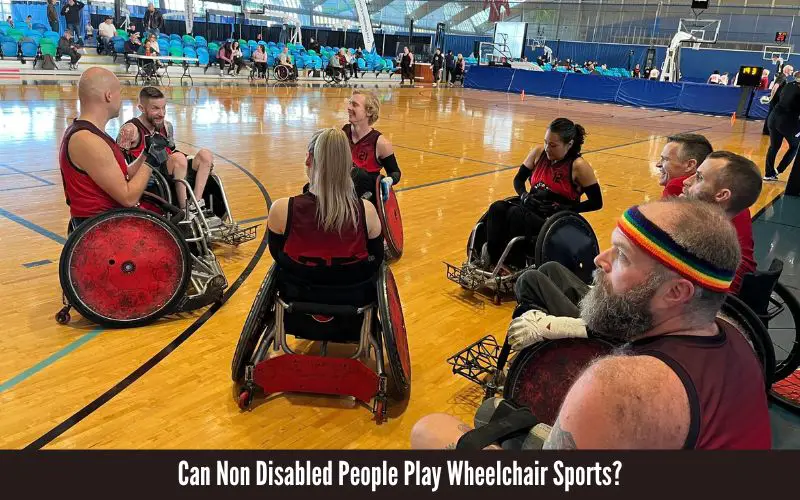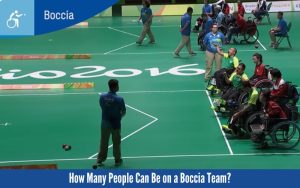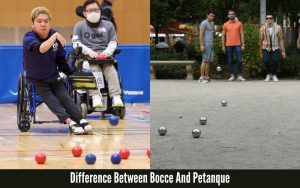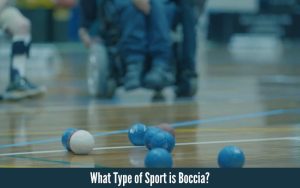Yes, non-disabled people can play wheelchair sports. Wheelchair sports are inclusive and open to individuals of all abilities.
Wheelchair sports offer a unique opportunity for individuals of all abilities to engage in competitive and recreational activities.
Contrary to popular belief, these sports are not exclusively limited to people with physical disabilities.
Non-disabled individuals can actively participate and experience the unique challenges and exhilaration that wheelchair sports provide.
From basketball and rugby to tennis and racing, wheelchair sports have gained popularity in recent years as a means of promoting inclusivity and breaking down barriers.
Beyond the physical benefits, these sports foster greater understanding, empathy, and camaraderie among participants, while also challenging societal perceptions of disability.
We will explore the accessibility and adaptability of wheelchair sports, providing insights into why non-disabled people can effortlessly partake in these thrilling and rewarding activities.
Benefits Of Non-disabled People Participating In Wheelchair Sports
Participating in wheelchair sports offers non-disabled individuals numerous benefits such as promoting inclusivity, fostering empathy, and offering a new level of challenge and camaraderie.
It allows for a greater understanding of disability, breaks down barriers, and encourages a more inclusive society.
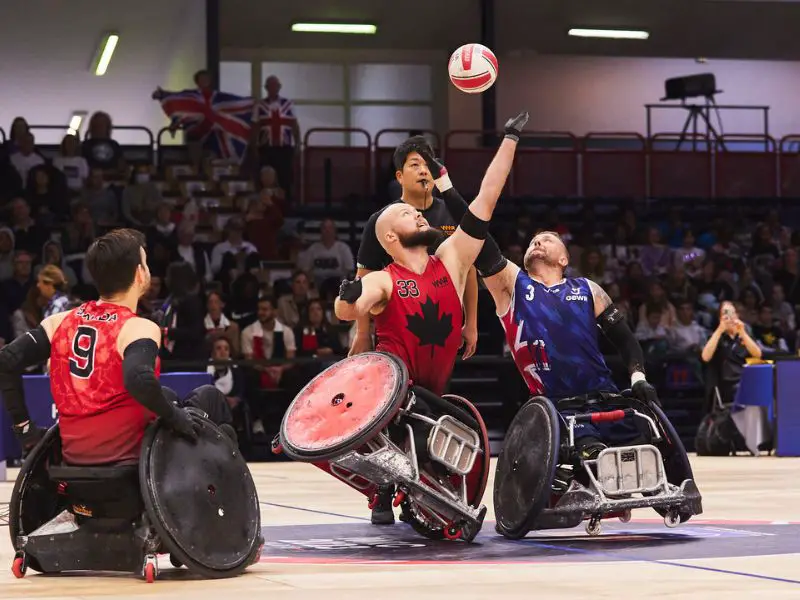
Participating in wheelchair sports can be a rewarding and eye-opening experience for non-disabled individuals.
It challenges the notion of ability and promotes empathy, inclusion, physical fitness, and unity. In this section, we will explore the benefits of non-disabled people engaging in wheelchair sports.
Increased Empathy And Understanding
By participating in wheelchair sports, non-disabled individuals gain firsthand experience of the physical, emotional, and social challenges faced by people with disabilities.
This immersive experience fosters a deeper sense of empathy and understanding, breaking down barriers and stereotypes.
It allows individuals to develop a greater appreciation for the determination, strength, and resilience demonstrated by wheelchair athletes.
Inclusion And Unity
Non-disabled individuals joining wheelchair sports teams or events promote inclusivity and unity within the community.
It sends a powerful message that disability does not define a person’s ability to actively participate in sports.
Participating alongside individuals with disabilities creates an inclusive environment where everyone is valued and respected, fostering a sense of belonging and unity among all participants.
Improved Physical Fitness
Engaging in wheelchair sports offers numerous physical fitness benefits for non-disabled individuals. Using a wheelchair challenges different muscle groups, including core and upper body strength.
Wheelchair sports such as basketball, rugby, or tennis require agility, balance, and coordination, contributing to improved overall physical fitness.
Additionally, the increased cardiovascular activity can enhance cardiovascular health and endurance.
Furthermore, non-disabled individuals participating in wheelchair sports can improve their proprioception and fine-tune their motor skills. These skills are valuable in daily life, enhancing body awareness, coordination, and control.
Summary:
- Participating in wheelchair sports increases empathy and understanding.
- It promotes inclusion and unity within the community.
- Non-disabled individuals can improve their physical fitness by engaging in wheelchair sports.
Challenges And Considerations For Non-disabled People In Wheelchair Sports
Can non-disabled people play wheelchair sports? The answer is a resounding yes! Wheelchair sports offer incredible opportunities for individuals of all abilities to come together and compete.
However, non-disabled individuals interested in participating in wheelchair sports should be aware of the challenges and considerations that come along with it.
Adapting To The Wheelchair
- Understanding the basics of using a wheelchair is crucial for non-disabled individuals looking to engage in wheelchair sports.
- Take the time to familiarize yourself with the various functionalities of the wheelchair, such as propulsion, steering, and stability.
- Practice getting in and out of the wheelchair, as well as maneuvering it in different directions effectively.
Learning The Techniques
Wheelchair sports require specific skills and techniques that may differ from traditional sports. Non-disabled individuals interested in participating in wheelchair sports must dedicate time to learning these techniques.
- Seek guidance from experienced players or coaches in wheelchair sports to learn the proper mechanics and form required for various sports.
- Focus on building upper body strength and endurance, as wheelchair sports heavily rely on the use of the arms and shoulders.
- Practice maneuvering the wheelchair while simultaneously managing the ball or equipment used in the specific sport of interest.
Navigating Different Rules And Regulations
Each wheelchair sport has its own set of rules and regulations. Non-disabled individuals entering the world of wheelchair sports must familiarize themselves with these specific guidelines.
| Sport | Rules and Regulations |
|---|---|
| Basketball | Understanding the classification system, which determines the eligibility of players based on their level of impairment. |
| Tennis | They are gaining knowledge of the specific rules regarding chair placement and movement during gameplay. |
| Rugby | Familiarizing oneself with the aggressive nature of the sport and the associated rules for contact and tackling. |
Failing to adhere to these rules can result in penalties or disqualification, making it essential for non-disabled participants to fully comprehend the regulations before competing.
Promoting Inclusion And Equal Opportunities In Wheelchair Sports
Non disabled individuals are encouraged to participate in wheelchair sports as a means of promoting inclusion and equal opportunities.
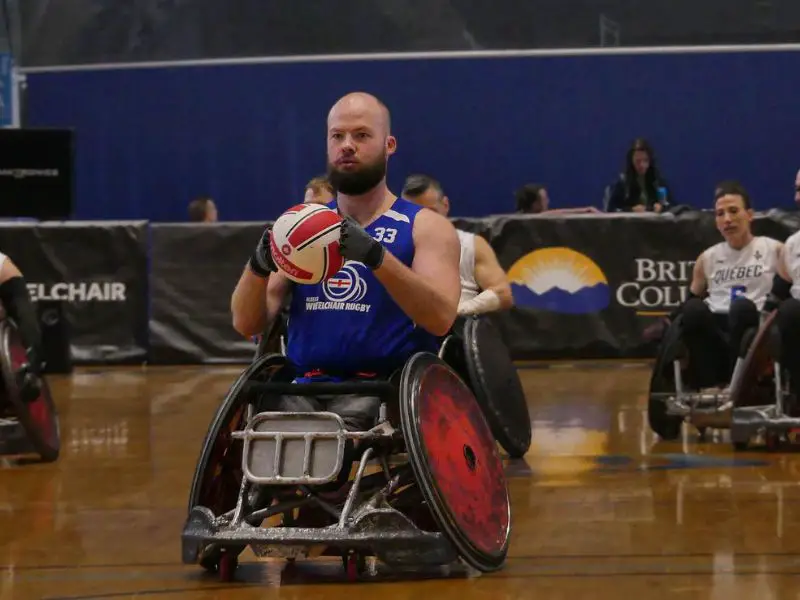
Wheelchair sports provide an opportunity for everyone, regardless of ability, to engage in physical activity and experience the benefits of sports.
Promoting Inclusion and Equal Opportunities in Wheelchair Sports
Raising Awareness And Advocacy
One of the key ways to promote inclusion and equal opportunities in wheelchair sports is through raising awareness and advocacy.
It is important to educate the general public about the capabilities and talents of individuals with disabilities. By spreading awareness, we can challenge the stereotypes and misconceptions that often surround disability.
Raising awareness can be achieved through various means, such as organizing public events and campaigns, sharing inspiring stories and achievements of wheelchair athletes, and utilizing social media platforms to reach a wider audience.
Advocacy plays a crucial role in ensuring that the needs and rights of wheelchair athletes are recognized and upheld.
Providing Training And Support
Another important aspect of promoting inclusion in wheelchair sports is providing adequate training and support for non-disabled individuals who wish to participate.
Training programs should be designed to cater to the specific needs and requirements of wheelchair athletes, taking into consideration their physical abilities and limitations.
This includes providing specialized coaching, equipment, and facilities that are suitable for wheelchair sports. By offering training and support to non-disabled individuals, we can create a more inclusive and diverse community of athletes in wheelchair sports, where everyone has the opportunity to thrive and succeed.
Creating Inclusive Events And Leagues
To truly promote inclusion and equal opportunities in wheelchair sports, it is crucial to create inclusive events and leagues. This means designing events and competitions that accommodate the needs of both disabled and non-disabled participants.
Creating inclusive events involves considering factors such as accessible venues, adapted rules, and equal opportunities for all participants. It is important to ensure that wheelchair athletes have the same opportunities to compete, excel, and be recognized for their skills and achievements.
Moreover, having integrated leagues where disabled and non-disabled athletes can compete together fosters a sense of camaraderie and equality. This encourages a more inclusive and supportive environment within the world of wheelchair sports.
Conclusion
To conclude, wheelchair sports provide a unique opportunity for individuals, whether disabled or not, to experience the thrill of competition and foster inclusivity.
By participating in these sports, non-disabled individuals not only enhance their physical abilities but also promote social integration and understanding.

